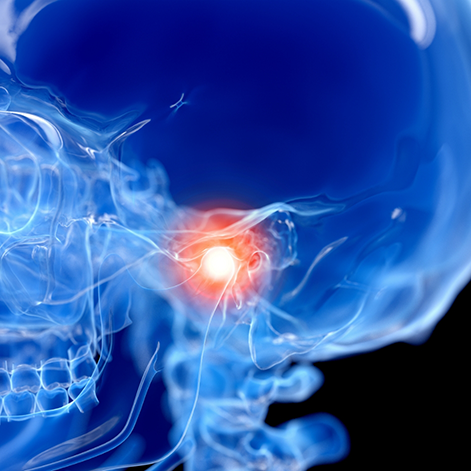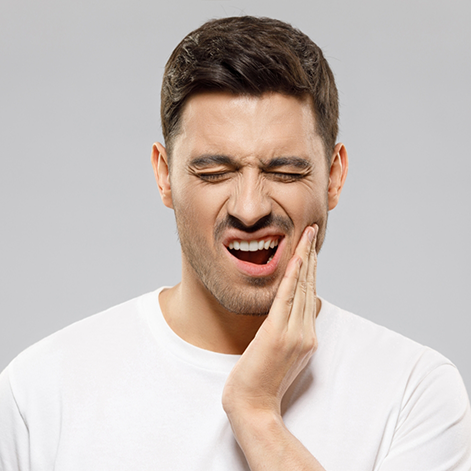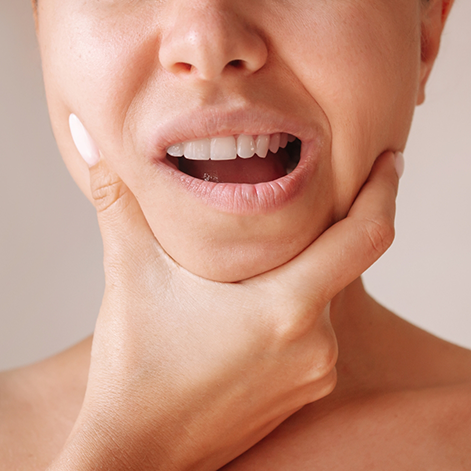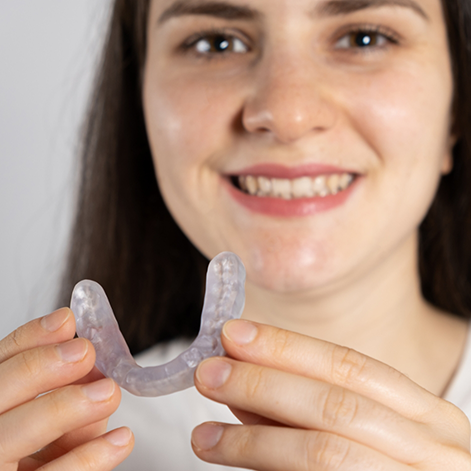TMJ Treatment Concord
Say Goodbye to Jaw Pain & Bad Sleep

Constantly feeling exhausted is not the only sign of sleep apnea; another common symptom is chronic jaw pain that can even trigger headaches and migraines. However, it’s rarely obvious that your jaw pain is stemming from bad sleep—but these two conditions are often deeply connected. Thankfully, treating one often means the other is resolved! To learn more about this often-overlooked relationship, or to schedule an appointment at our Concord office, don’t hesitate to contact our team!
Why Choose New Hampshire Airway Wellness Center for TMJ Treatment?
- Dedicated Sleep Dentist with Several Years of Experience
- Custom-Made Oral Appliances for Every Patient
- Insurance-Friendly & Financing Options Available
What is TMJ Disorder?

The temporomandibular joints, often abbreviated as the TMJ, are the two hinge-like joints that are located in front of your ears; they have the important responsibility of connecting your jaw to the rest of your skull and granting it a free range of motion. However, just like your knees, elbows, and other joints throughout your body, these jaw joints can also become strained and develop frequent pain and stiffness. This is known as TMJ disorder, or TMD.
What Can Cause TMJ Pain?

There are numerous factors that can contribute to TMJ pain, and a major one happens to be sleep apnea. As a patient struggles to breathe during the night, their body naturally tries to open the upper airway. This can cause excessive movement in the jaw that, in turn, leads to pain, and it might also lead to dental issues such as teeth grinding. Eventually, the muscles become tired and sore—which is why everything might feel unpleasant when you wake up each morning.
Common Symptoms of TMJ Disorder

TMJ disorder can cause a variety of uncomfortable symptoms that affect your daily life, while also contributing to sleep apnea. A few common signs include jaw pain or tenderness, difficulty chewing, and a clicking or popping sound when opening or closing your mouth. Some patients also experience frequent headaches, earaches, or even facial pain that spreads to the neck and shoulders. Because so many of these symptoms can overlap with other conditions, coming in for a professional evaluation is crucial.
How Do Occlusal Splints for TMJ Work?

Occlusal splints, often called night guards, are a common treatment for TMJ disorder. These custom-made oral appliances fit comfortably over your teeth and work by gently repositioning the jaw to reduce strain on the temporomandibular joints. They can help relax overactive jaw muscles, protect teeth from grinding or clenching, and minimize painful pressure on the joints. By improving jaw alignment and reducing tension, occlusal splints can provide immense relief from TMJ-related pain.
